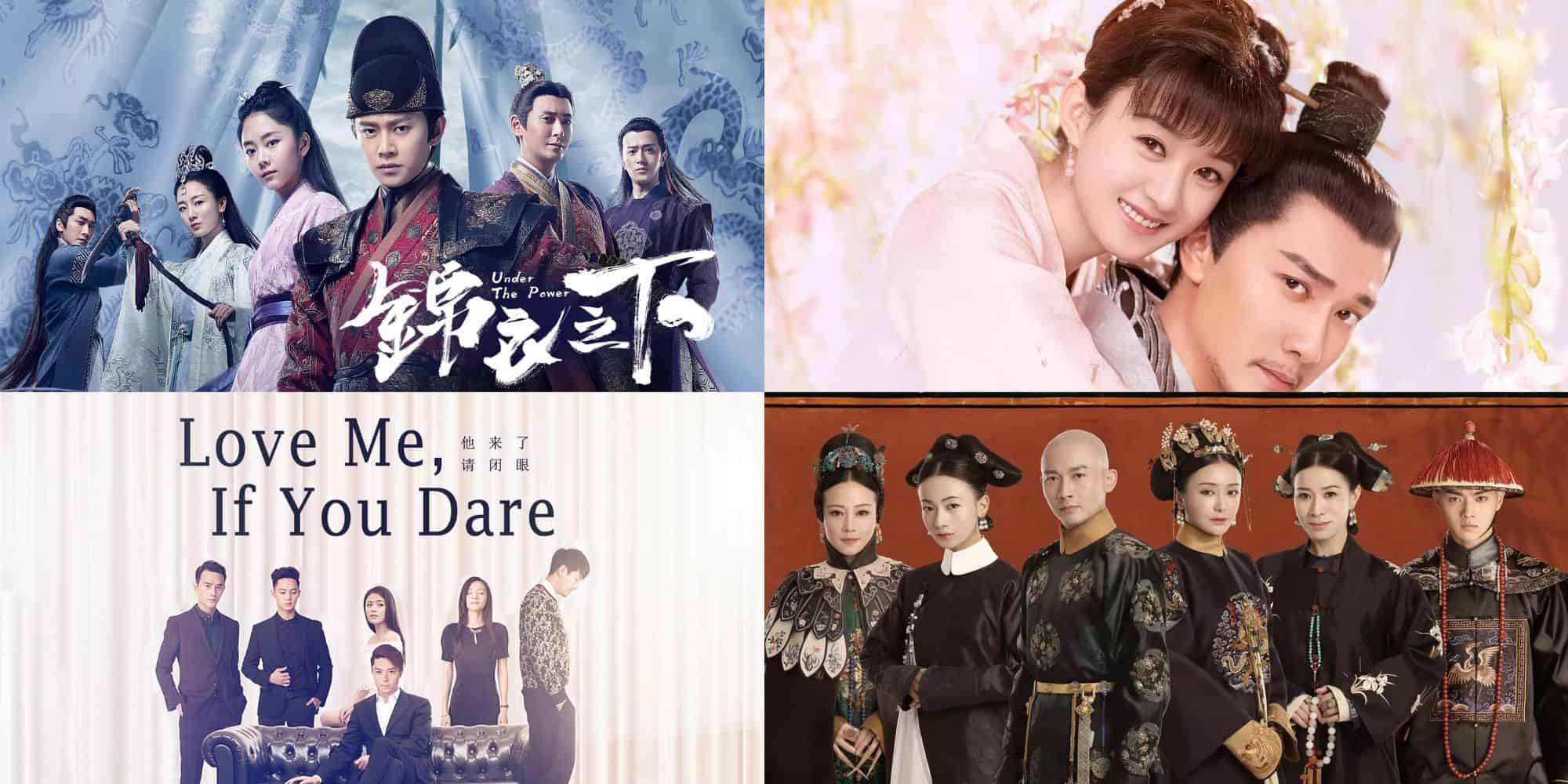The rich tradition of Chinese drama stretches back centuries, with roots in folk performances depicting legends, histories, and social commentary. Over generations, these informal productions evolved into stylized theatrical art forms employing music, dancing, elaborate costumes, and symbolic props. While Peking opera is perhaps the most recognizable genre internationally, the southern province of Guangdong developed its influential style, Cantonese opera.
Blending dramatic storytelling, acrobatics, and passionate singing, Cantonese opera captivated audiences with moving tales of honor, sacrifice, and fate. Among the most beloved works is “Sword and Brocade,” a legendary saga chronicling the adventures of heroic figures from China’s Warring States period.
Adapting historical chronicles and folktales into a flowing theatrical narrative, “Sword and Brocade” transports viewers to an ancient land rife with courtly intrigue, political upheaval, and timeless struggles of loyalty, justice, and love. Through awe-inspiring stunts, elaborate mime, and soulful arias, performers bring unforgettable characters to life on stage.
Also Read: Good Witch Korean Drama Review and Plot Analysis
Under the Power
1885 Australian author Rosa Praed published her novel Under the Power, set in colonial Queensland. The book explores spirituality, morality, gender roles, and the clash of European and Indigenous cultures in 19th-century Australia. The novel’s protagonist is Grace Thornton, an English gentlewoman who emigrates to Australia after the death of her clergyman father.
Upon arriving in Brisbane, Grace stays at their cattle station with her aristocratic cousins, the Mainwarings. She soon learns that the Mainwarings and their class rule the colony with an iron fist, persecuting the Irish underclass and repressing the local Aborigines.
Grace finds life at the station stifling and longs for some purpose. She embarks on charitable works, teaching lower-class white and Aboriginal children at a small bush school.
Grace witnesses many injustices perpetrated by the ruling class against powerless groups. Her cousin Stephen Mainwaring violently puts down an Irish workers’ revolt while the land rights and humanity of Aboriginal peoples are completely disregarded. As McKeith gains power and authority over the station, his personality grows more authoritarian and cruel.
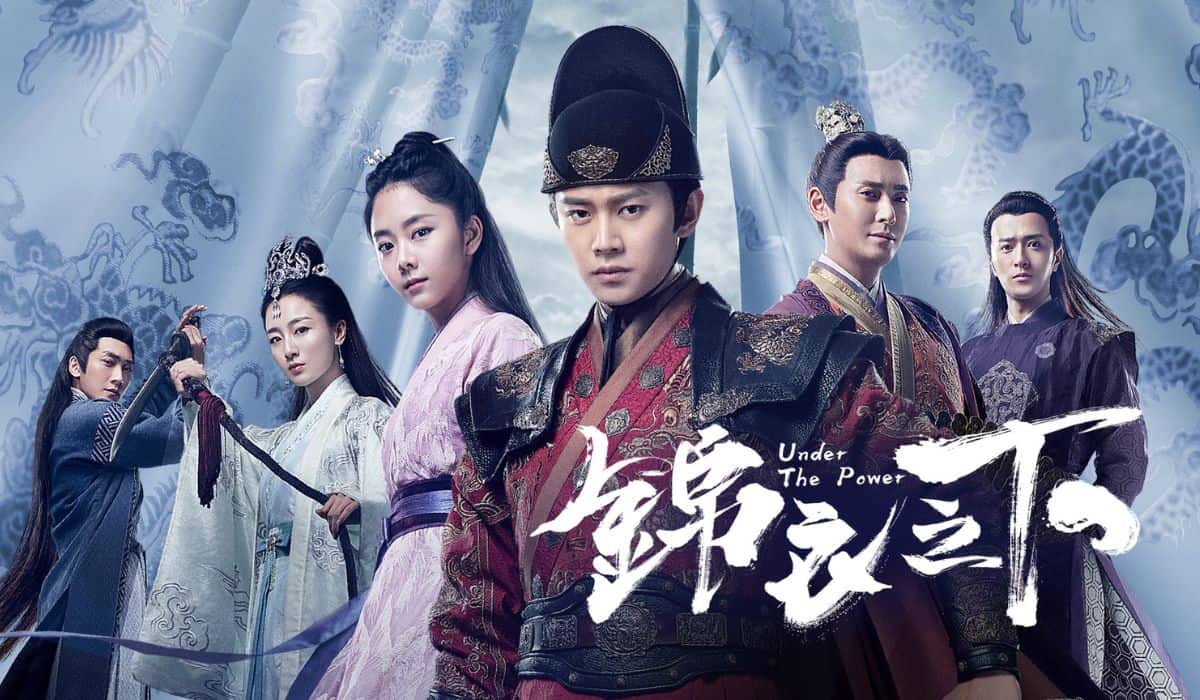
The novel culminates in a confrontation between the Protestant Anglo-Australians and the oppressed Irish during the Feast of St. Patrick. Molony stirs the Irish to riot over their mistreatment. In the chaos, McKeith appears to harness a malevolent and otherworldly power to quell the uprising. In the aftermath, Grace rejects McKeith and his corrupt power and plans to return to England. Her supernatural intuitions have been confirmed.
She further resolves to repudiate the mainstream Anglicanism that condoned the abuses of the colony and to develop her faith rooted in morality and justice. The novel ends with Grace contemplating a future life guided by her inner spiritual light instead of external patriarchal authority.
The Story of Ming Lan
The Story of Ming Lan is a Chinese historical drama in the Northern Song dynasty. It follows Ming Lan, an intelligent young woman born to a concubine who eventually rises to the ranks of society. Despite the oppressive gender inequality of ancient China, Ming Lan prevails using her wits and inner strength. The story begins with Ming Lan as a six-year-old observer of the complex inner workings of her family household.
She is the neglected daughter of an official’s concubine. Early on, Ming Lan realizes she must be wise and careful to survive.
After her mother schemes to make Ming Lan the legitimate daughter fail, her grandmother warns Ming Lan not to hope for her father’s love or protection. Ming Lan soon loses her biological mother, who commits suicide after being betrayed. Her grandmother raised Ming Lan to be intelligent and disciplined.
Ming Lan excels at school, earning her new status as an educated daughter rather than just a worthless concubine’s child. Her wisdom and composure earn her the nickname “Girl Who Is Rarely Wrong.”
The story skips ahead to Ming Lan as a teenager getting engaged to an abusive, manipulative man. Trapped in the engagement arranged by her oblivious father, Ming Lan resigns herself to her fate.

Even after marrying Tingye, Ming Lan faces obstacles from his disapproving family and attempts by others to undermine her. But Ming Lan holds her own using intelligence, grace, and her medical expertise. Her compassion earns the respect of Tingye’s mother, securing her place as his wife. The story emphasizes how skillfully Ming Lan navigates treacherous situations without compromising her principles.
She helps many downtrodden women and defends them from harm. Her sense of justice compels her even when she risks personal cost. One dramatic subplot involves Ming Lan’s birth mother, who reenters her life later. Mrs. Sheng tries to use Ming Lan to gain favor in the household.
But Ming Lan refuses to be manipulated and rejects Mrs. Sheng’s cruelty and deception. Her strength in the face of her estranged mother’s mistreatment shows her fortitude.
Love Me If You Dare
Love Me If You Dare is a 2003 French romantic comedy-drama film that follows the complicated relationship between Julien and Sophie from childhood into adulthood. As children, Julien and Sophie strongly bond over their shared sense of mischief and penchant for risky games. They grow up challenging each other with escalating dares to push their limits.
Their daring adventures and escapades eventually become a complicated cat-and-mouse game driven by a fearful attraction. In school, Julien is bullied for being shy and withdrawn. Sophie intervenes to protect Julien, starting their friendship.
They soon begin exchanging a tin box inscribed “Jeux Interdits” (“Forbidden Games”) and daring each other to take bigger and bigger risks. Their innocent fun takes a sadistic turn after traumatic events.
Sophie’s mother dies from cancer despite her pleading to God to intervene. A devastated Sophie punishes Julien with a cruel dare. In turn, Julien retaliates by daring Sophie to kiss her father’s mistress during their wedding. Their dares become tools to deal with pain and cope with difficult realities.

The morning after they sleep together, Sophie rejects Julien and disappears for several months. She only leaves a letter ending the dare game and their relationship. Julien is heartbroken when Sophie returns with a fiancé. At their wedding reception, Julien declares his love for Sophie and begs her to admit she still loves him. Sophie refuses to give in to the dare, leaving Julien angrily destroying the wedding cake.
Years later, Julien and Sophie meet again at their high school reunion. The spark between them instantly reignites. Julien dares Sophie to run off with him.
She hesitates but finally agrees. They impulsively make love again in a hotel room, rekindling their passion. In the morning, reality sets back as Sophie insists they cannot keep indulging their unhealthy obsession. Julien desperately proposes marriage, but Sophie leaves him again.
Also Read: The Sword and the Brocade Episode Schedule
Story of Yanxi Palace
Yanxi Palace is a Chinese period drama set during the Qing dynasty. The story follows Wei Yingluo, a young woman who enters the Forbidden City as a seamstress. She quickly learns to navigate the treacherous politics of the imperial harem and courts to gain power and influence. Wei Yingluo was born to a noble family that was framed for treason. Her entire family was executed, leaving her alone to fend for herself.
She enters the Forbidden City by becoming a seamstress through her exceptional sewing skills. Many royal consorts are vying for the Emperor’s affection inside the palace. Yingluo befriends the Emperor’s favorite concubine, Consort Ling. But she also becomes enemies with the ambitious Consort Hua, who ruthlessly eliminates her rivals. As Yingluo grows closer to the Emperor, she gains his favor and ranks Noble Lady Wei.
But danger and intrigue lurk behind the opulent facade of the imperial harem. Yingluo cleverly outmaneuvers her opponents using her wit and charm. She also wins allies by helping them. Through her courage and determination, Yingluo steadily gains power despite the obstacles threatening to destroy her.
A major subplot involves the Crown Prince embroiled in a power struggle with his uncle, Prince Yu, over who will inherit the throne. Yingluo gets caught in the middle as both sides try to coerce her support.
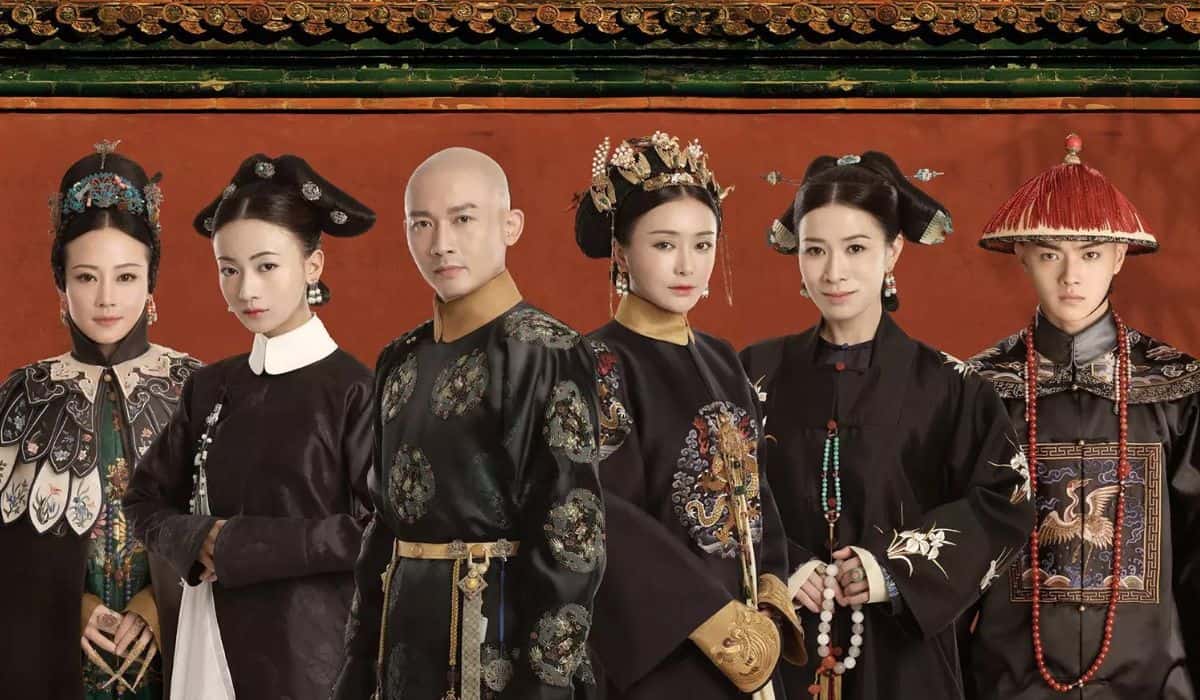
Consort Hua remains Yingluo’s biggest nemesis as they repeatedly clash. Hua becomes Empress when Yingluo gets pregnant with the Emperor’s child first.
As Empress, Hua gains new power over Yingluo and ruthlessly abuses her authority. She forces Yingluo to give up her newborn son to raise herself. Despite Hua’s constant plots against her, Yingluo continues strategizing to secure her position.
Her growing influence and favor with the Emperor protects her. But tragedy strikes when Minhui dies from Hua’s poisoned tea, originally meant for Yingluo.
Though heartbroken over her friend’s death, Yingluo has to suppress her grief and desire for revenge. The Emperor begins favoring another young consort, Fuqi, further threatening Yingluo’s status. But Fuqi is Princess Minhui’s secret daughter, placed in the palace by Yingluo to protect her.
Also Read: 12 Drama Like The Story of Minglan
Only
Only is a 2021 Chinese romance drama directed by Hong Qiuzhu. It is based on the novel “Walking Alone on the Night With Wind and Rain” by Ming Xiaoxi. The drama stars A-listers Victoria Song and Wang Talu as the main leads. They showcase crackling chemistry as mismatched lovers brought together by destiny. Set in competitive worlds of sports and finance, Only paints a touching romance between two driven professionals.
Song stars as Tian Yunxin, a champion archer struggling to revive her career after being sidelined by injury. Wang plays Lu Shao’an, an elite investment banker who experiences tragedy in his personal life.
Though starting on abrasive terms, Yunxin and Shao’an gradually open up to each other and find solace together. Their blossoming relationship unfolds against high-pressure environments where only the strong survive.
Only grabbed attention for casting two popular idols as the main romantic pairing. Victoria Song rose to fame as a member of the K-pop girl group f(x).
The series marks her long-awaited return to television as lead actress. Wang Talu has built up a devoted fanbase through acclaimed performances in dramas like Go Go Squid.
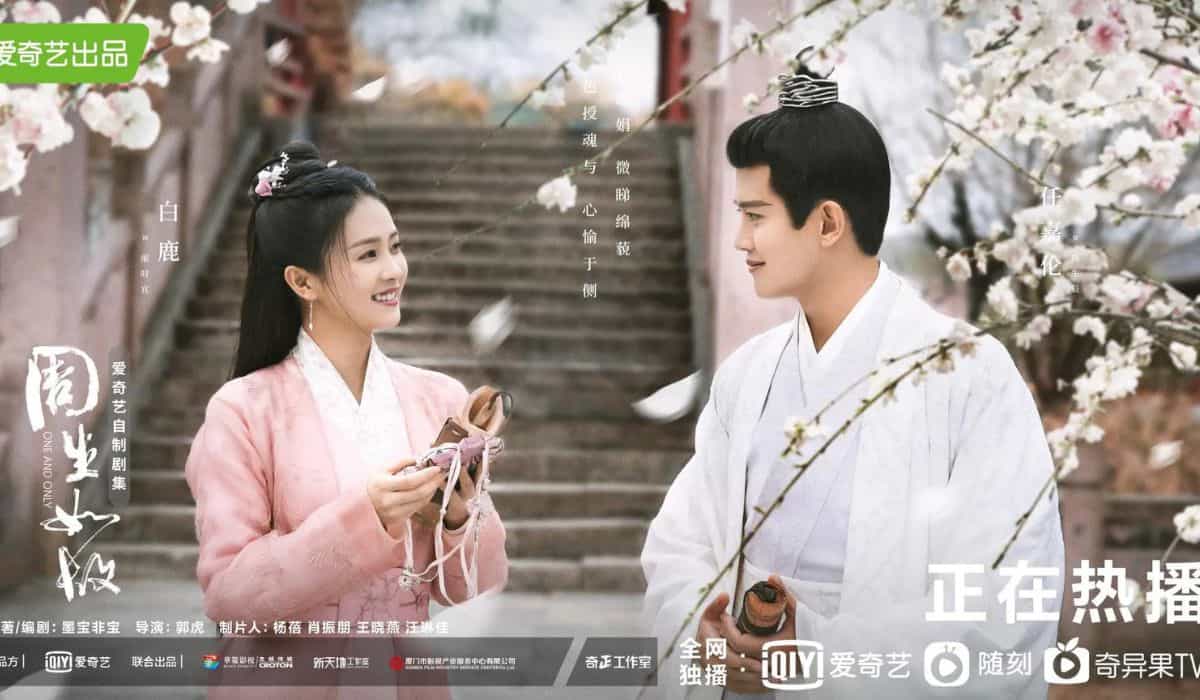
What starts as a purely business-focused partnership between the overly serious Lu and free-spirited Tian slowly transforms into mutual understanding and attraction.
Wang Talu’s emotional performance conveys Lu’s gradual unfreezing as Tian’s sunny outlook penetrates his stoic armor. Beneath Tian’s pep and cheer, Song movingly reveals the Athlete’s determination to prove her worth again. Tian finds a steadfast source of support in the levelheaded Lu.
The lead actors imbued Their developing relationship with playful chemistry, keeping the long episodes engaging. However, trouble looms from Lu’s fiancee, Tangning, who sees Tian as a romantic rival.
Veteran actress Sun Qian injects nuance into what could have been a one-note villain role. Tangning earns traces of sympathy as her insecurities over Lu’s waning affections emerge.
Also Read: 100 Best Chinese Drama To Watch All Time Best Shows
Princess Agents
Princess Agents is a 2017 Chinese television series based on the novel 11 Chu Te Gong Huang Fei by Xiao Xiang Dong Er. This historical drama presents a fictionalized account of the rise of Emperor Yuan of Han.
The story is told through the perspective of Chu Qiao, an enslaved person turned warrior who plays a pivotal role in Yuan ascending the throne. The drama opens with the Western Wei state ransacking the rival Yanbei territory.
Amidst the chaos, the young princess Yan Xun manages to escape with his subordinate Yuwen Yue. However, Xun’s sister, Chu Qiao, is captured and turned into an enslaved person with no memories of her past. Ten years later, Chu Qiao has become a determined fighter struggling for survival in the enslaved person ranks.
She catches the eye of Yuwen Yue, now the regent of Wei. He selects her for the “Princess Agents” program, which transforms slave girls into lethal operatives loyal to Wei.
Under Yuwen’s ruthless tutelage, Chu Qiao excels in combat skills and military strategy. Her capabilities earn her the codename “Number One.”
She leads key missions across rival states, becoming instrumental to Wei’s expansionist plans. However, glimpses of Chu Qiao’s forgotten past begin to return. Horrified by Wei’s cruelty, she starts to question her loyalty. An encounter with the exiled Yan Xun reawakens memories of her Yanbei heritage.

As Xun wages war, Chu Qiao realizes he has turned tyrannical in his quest for vengeance. Disillusioned, she rejects Xun and instead backs the kindhearted commoner Yuan Song.
She believes Yuan has the compassion to lead the people. Chu Qiao masterminded strategic campaigns that enabled Yuan to outmaneuver rival warlords. In an epic clash, Yuan’s forces defeat Xun while Chu Qiao slays Yuwen in combat.
Yuan became known as Emperor Yuan, the founder of the Han dynasty. Chu Qiao has proven herself as the power behind the throne. However, she relinquishes political power and roams the jianghu (martial arts world) as an independent warrior.
Spanning several states warring for supremacy, Princess Agents weaves martial arts action with palace intrigue. Chu Qiao evolves from victim to warrior to visionary throughout her arduous journey.
Also Read: 45 Most Evil Anime Characters Of All Time
Eternal Love of Dream
Eternal Love of Dream (also known as Three Lives Three Worlds, The Pillow Book) is a 2020 Chinese television series based on the novel of the same name by TangQi GongZi. This fantasy romance drama revolves around the undying love between the mortal physician Si Feng Jiu (played by Dilraba Dilmurat) and the immortal crown prince Ye Hua (played by Vengo Gao).
The drama begins in the mortal realm, where Si Feng Jiu is the apprentice to a revered doctor. She possesses extraordinary medical skills and a deep sense of compassion.
By chance, she meets Ye Hua, the crown prince of the Heavenly Kingdom. He is captivated by her kind heart and rare talent. A romance soon blossoms between them despite their vastly different backgrounds. However, their love story is threatened by outside forces.
The villainous celestial Zi Lan covets Ye Hua’s position and conspires to drive the couple apart. He spreads false rumors about Si Feng Jiu, causing her reputation to be tarnished in the eyes of the heavenly clan. Ye Hua is torn between his love for Si Feng Jiu and his duty as the future ruler.
The turning point comes when Si Feng Jiu bravely confronts Zi Lan but is severely injured. To save her life, Ye Hua has no choice but to erase all her memories of their time together and send her back to the mortal realm.
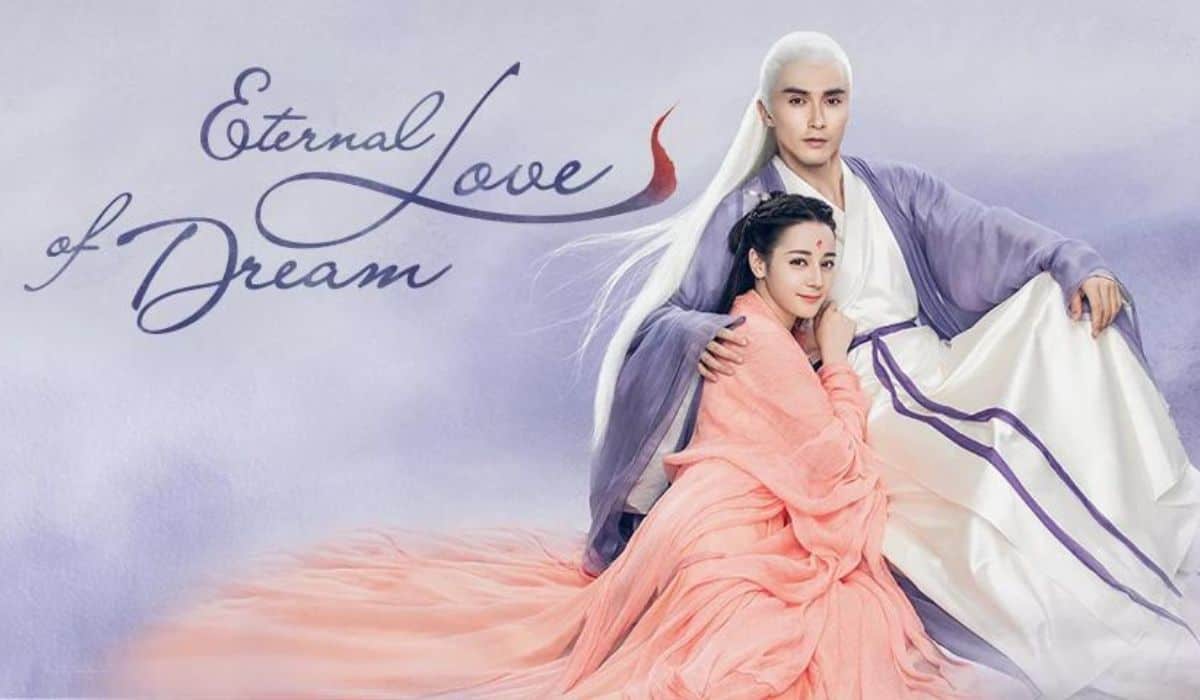
Determined to jog her memory, Ye Hua descends to the mortal realm whenever he can steal a chance, risking the wrath of his celestial wife, Bai Feng Jiu. He patiently stays by Si Feng Jiu’s side, helping her solve strange medical cases through his celestial knowledge and powers. Gradually, hazy impressions of Ye Hua begin stirring in Si Feng Jiu’s heart.
She is drawn to him like a moth to flame, even though she knows an affair would be impossible. Emotionally tormented, Si Feng Jiu chooses to leave Ye Hua and suppress her burgeoning feelings.
The story escalates when Si Feng Jiu is erroneously accused of harming Bai Feng Jiu’s unborn son. To escape punishment, she flees into the turbulent mortal wars. Believing Si Feng Jiu is dead, a devastated Ye Hua places himself under an enchanted slumber for 70,000 years to numb his grief.
The Imperial Coroner
A genius forensic investigator joins forces with a quirky prince to solve baffling murder cases in medieval imperial China. This addictive premise has propelled “The Imperial Coroner” to the top of streaming charts, garnering over 3 billion views since its premiere. BleRomanceomedy, Romance, and crime procedural, this surprise hit strikes the perfect balance between comfortable viewing and edge-of-your-seat thrills.
Adapted from the novel Ri Chu, “The Imperial Coroner” follows inquisitive young Tang Fan Jin (played by Xu Kai) as he pioneers medieval forensics to assist rightful heir Prince Yi Cheng (Liu Yi Jun) in solving cryptic murders within the palace.
Using clever deductive methods and rudimentary autopsy, Tang goes from palace laundryman to trusted partner in the prince’s crusade for justice.
Xu Kai brings an infectious enthusiasm and offbeat humor to the eccentric but brilliant Tang, letting his natural likeability shine through. Liu Yi Jun offsets this as the straight-man Prince Yi Cheng, their odd-couple chemistry providing many laugh-out-loud moments.
The entire endeavor has a lighthearted, buddy-cop vibe that prevents the grisly mysteries from getting too grim. Yet the show still delivers genuinely chilling scenes as the pair peel back the dark secrets lurking within the palace.
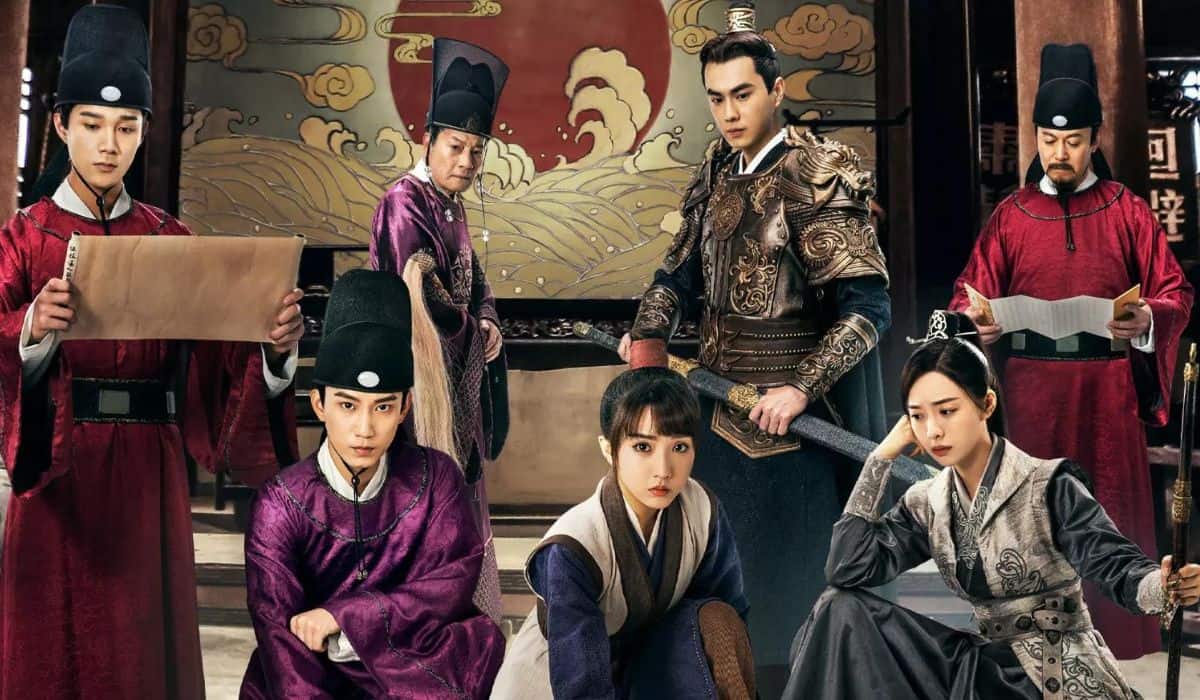
Showrunners strike the right balance between leaving breadcrumbs for engaged viewers versus confusing those who want to sit back and be surprised. But “The Imperial Coroner” transcends being just a competent procedural through its emotional character-driven core.
Prince Yi Cheng’s father, the Emperor, is suspected in his mother’s suspicious death, adding a deeply personal stake to his pursuit of the truth. And eccentricities of genius Tang hides grief over his sister’s unsolved murder, which fuels his obsessive drive to uncover secrets.
Also Read ‘Pinocchio’ Kdrama Cast: Where Are They Now?
The Long Ballad
From its glorious sets to sweeping warfare scenes, “The Long Ballad” immersed viewers in the epic saga of Romance, betrayal, and sacrifice against a tumultuous period in Chinese history. Since its premiere last year, this big-budget costume drama has become one of the most talked-about shows across Chinese social media.
After conquering streaming charts with billions of views, it’s easy to see why “The Long Ballad” deserves its popularity as a modern masterpiece.
Adapted from a fantasy novel, “The Long Ballad” tells the story of Li Chang Ge, a princess forced to flee when enemy invaders destroy her kingdom. Disguising herself as a man, she joins the resistance against the mighty Tianquan Empire and its cruel Prince of Tianquan.
Chinese actress Dilraba Dilmurat is luminous in the lead role of Li Chang Ge, portraying both her gritty tenacity and romantic yearning with convincing nuance. Liu Tao matches her scene for scene as the chilling villain, Prince of Tianquan, who descends from antihero into utter darkness as his obsession with Li Chang Ge turns destructive.
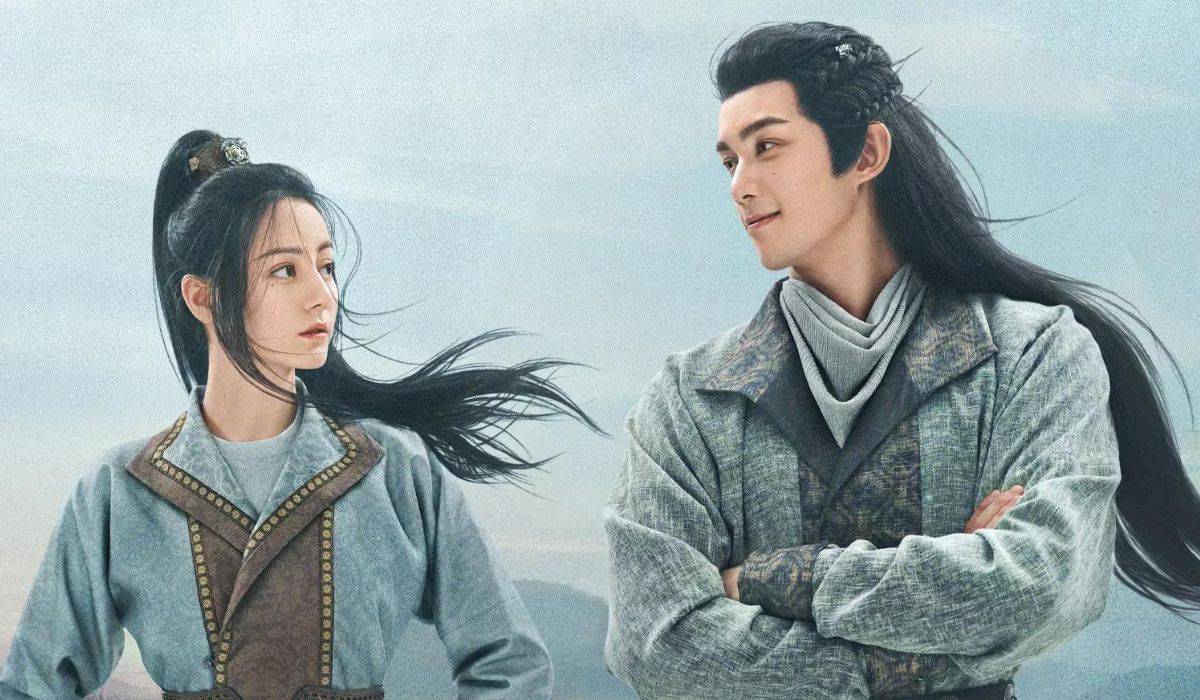
Their complex relationship, constantly switching from enemies to allies to enemies again, provides the emotional anchor for the sweeping war narratives. And sweep it does – “The Long Ballad” serves up battle scenes worthy of a big-budget war epic.
Thousands of extras march in formation across sprawling battlefields, and magnificent cities burn in violent sieges.
The action stays grounded through tight character focus and historical inspiration from the An Lushan Rebellion that shaped the Tang Dynasty. CGI enhances rather than dominates, with practical effects heightening the grit and gore of warfare.
Fake Princess
In a time when imperial China was rife with corruption and deceit, an unlikely heroine emerged to fight for justice and truth. This is the premise of “Fake Princess,” a wildly popular Chinese historical drama that has captured the hearts of millions of viewers across the country.
The show centers around the fictional character of Wei Young (portrayed by Angelababy), a young woman whose entire family was wiped out due to the malicious scheming of the power-hungry Prime Minister.
After miraculously surviving the massacre herself, Wei Young trains for 10 years under a martial arts master and returns to seek vengeance against those who destroyed her family.
Disguising herself as the long-lost Princess Xiao Feng, Wei Young infiltrates the palace and becomes embroiled in the cutthroat inner workings of imperial court politics.
What ensues is an enthralling story of intrigue, romance, forbidden Romance, and girl power. At the core of “Fake Princess” is the remarkable character arc of Wei Young, who transforms from a naive teenager to a calculating, courageous warrior against injustice.
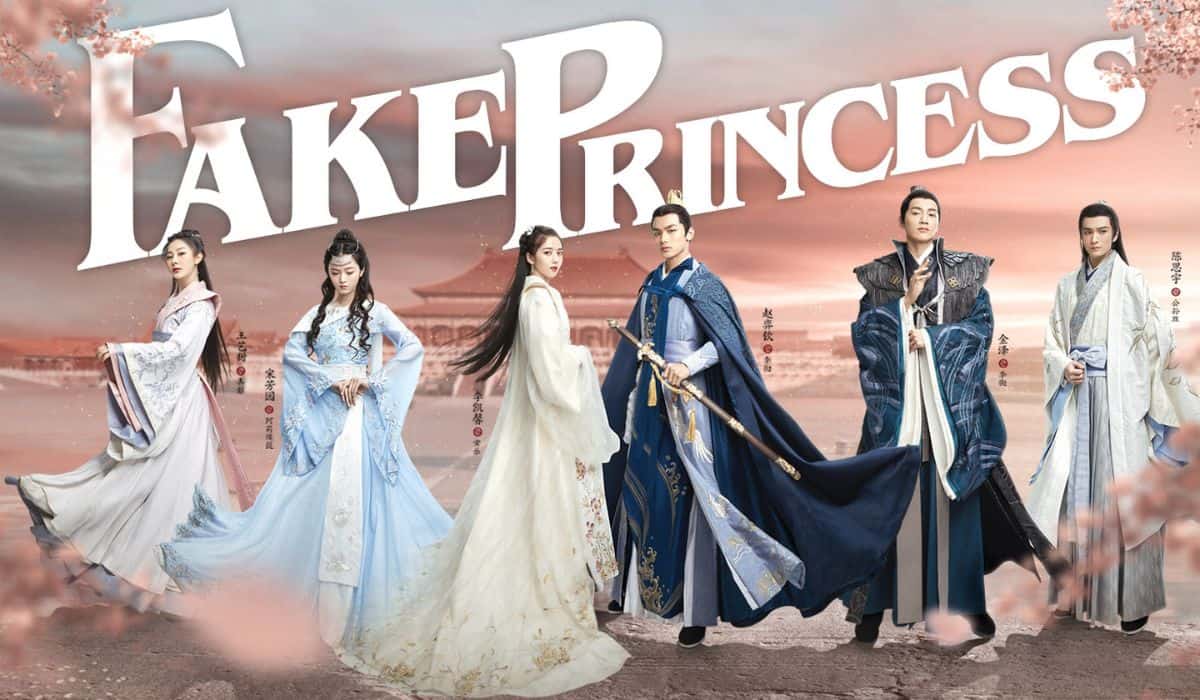
Prince Xiao Feng starts as an arrogant foil to Wei Young but eventually comes to respect and Romancer her. Their Romance faces impossible barriers in the rigid hierarchy of the imperial court, making every stolen glance and forbidden affair all the more affecting.
A good drama lives and dies on the strength of its villains, and “Fake Princess” delivers some of the most delightfully sinister antagonists in recent memory.
Esteemed actress Yuan Quan steals every scene she’s in as the ruthless Empress Dowager, wielding power through manipulation and violence.
Her shifting alliances with Wei Young inject suspense and urgency into court intrigues. Meanwhile, heartthrob Xu Kai taps into unexpected menace as the volatile Prince Su, whose obsession with Wei Young drives much of the plot.
Also Read: 10 K-dramas Like Playful Kiss You Need To Watch
Legend of Yun Xi
Legend of Yun Xi captivated viewers across China and beyond when it aired in 2018 with its suspenseful plot blending medical intrigue, martial arts action, and romance. This 48-episode web series, set during the Tang Dynasty, immersed audiences in political scheming, forbidden love, and female empowerment.
At the show’s heart is protagonist Han Yun Xi, played with quiet strength by Ju Jingyi. Yun Xi’s journey from common-born herbal apprentice to imperial physician propels the narrative forward through palace conspiracies and martial arts showdowns. She contends with corrupt officials and an arranged marriage to the reserved Emperor Long Fei, exquisitely portrayed by Zhang Zhehan.
The drama grabs our attention immediately by framing Yun Xi as an underdog. She faces adversity as a woman from humble means aspiring to enter the male-dominated medical field. Ju Jingyi makes Yun Xi relatable through her compassion and tenacity.
When Yun Xi treats her first patient disguised as a man, the look of awe and excitement on Jingyi’s face endears her to the audience.
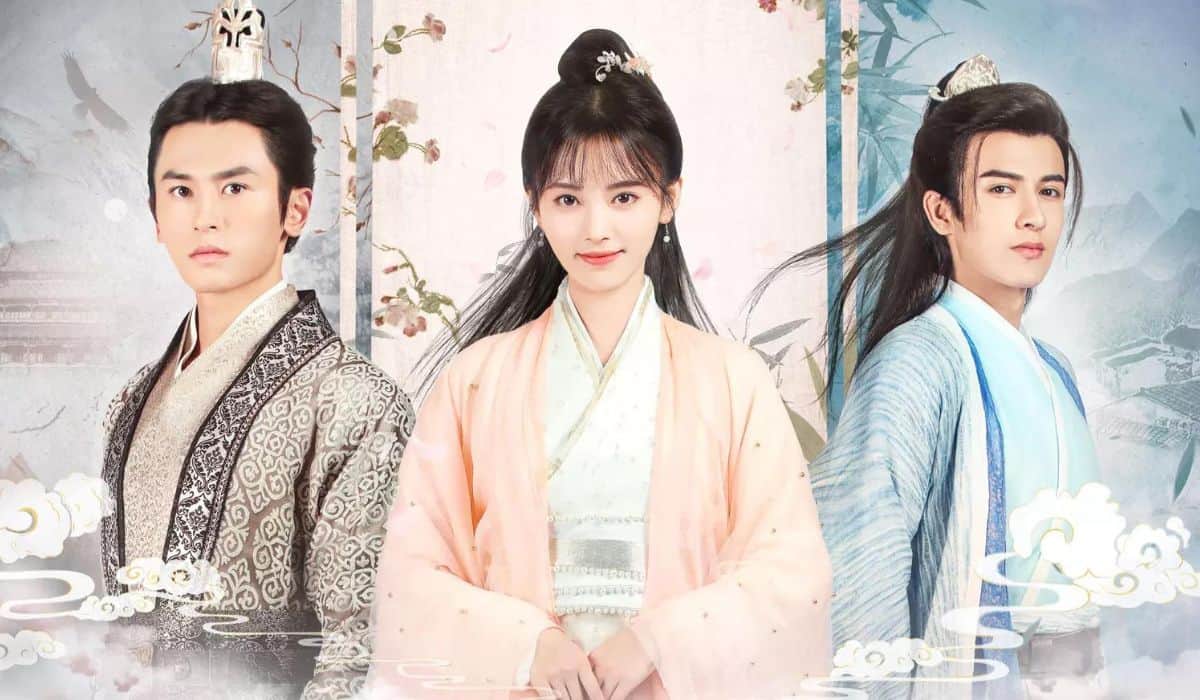
Romance takes a backseat for much of the show as Long Fei keeps Yun Xi at arm’s length while she saves royals and commoners.
Their marriage remains unconsummated, allowing Yun Xi continued access to the imperial hospital. When Long Fei does show flickers of passion, Zhang Zhehan excels at depicting the Emperor’s inner turmoil between duty and desire. The writers craft secondary characters who provide counterpoints to the principled leads.
Long Fei’s calculating mother, the Empress Dowager, stirs up trouble to gain influence. Charming Gu Beiyue, Long Fei’s illegitimate brother, pursues Yun Xi despite her married status. Yun Xi’s mischievous maid, Ruyi, lightens the palace melodrama with much-needed humor.
The Legend of Yun Xi incorporates martial arts action sequences from typical costume dramas. Yun Xi wields acupuncture needles as defensive weapons when pushed to violence.
Also Read: 12 Shows Like American Born Chinese That You Can Watch
Cruel Romance
When it comes to Chinese dramas, Cruel Romance stands out as one of the most gripping and addictive series to come out in recent years. This 2015 period drama has it all – lavish costumes and sets, passionate acting, and a storyline fueled by love, betrayal, and revenge.
Set in 1930s Shanghai during the Republican era, Cruel Romance follows the story of Rong Jinxiu, a young aristocratic daughter whose life is turned upside down when her entire family is murdered.
She narrowly escapes and finds herself under the guardianship of the powerful triad leader, Zuo Zhen. This sets into motion a tumultuous yet intoxicating romance between Jinxiu and Zhen, as they are forced to depend on each other while conspiring enemies try to romance apart.
Cruel Romance captivates with its stunning visuals and production design that vividly bring 1930s Shanghai to life. The glittering mansions, smoky opium dens, and sultry jazz clubs transport us into an ancient world of wealth, vice, and intrigue.
When Jinxiu arrives in the big city after her family’s murder, the neon-lit streets and bustling crowds highlight her isolation and vulnerability.
Much praise goes to the talented cast, led by Joe Chen and Huang Xiaoming as the main leads. Joe Chen is moving as Jinxiu, portraying her transformation from a delicate girl to a fierce woman set on vengeance. Her initial innocence makes the later scenes where she cunningly plots revenge all the more startling.
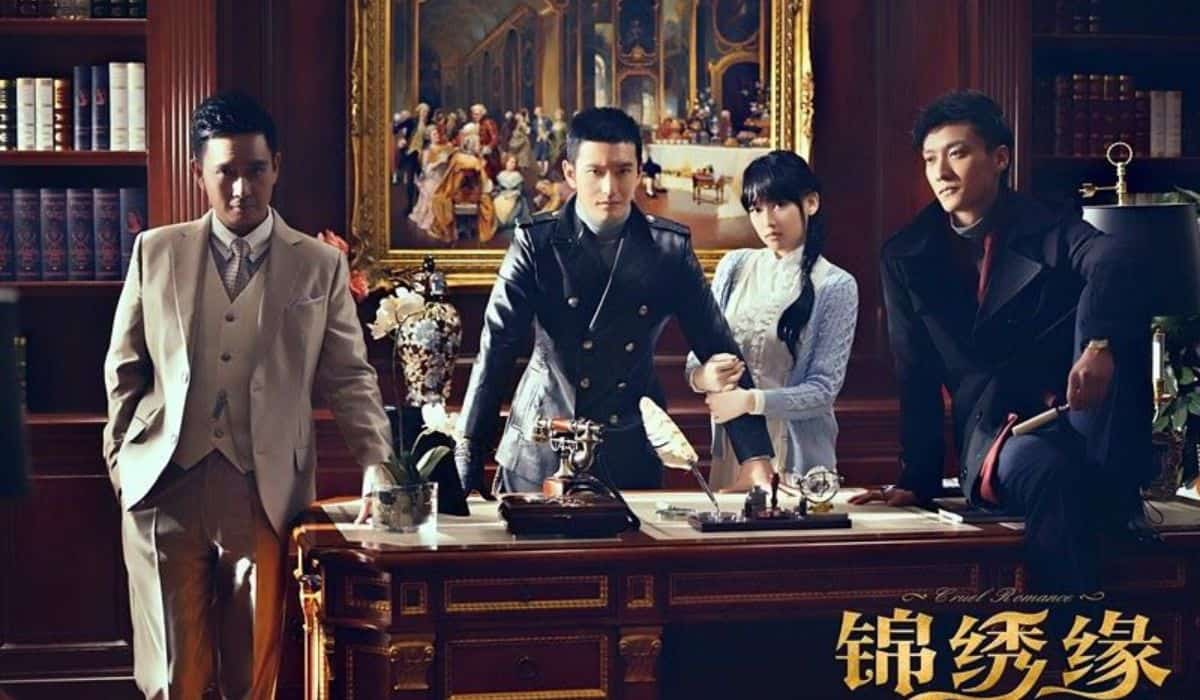
Beyond the central couple, the drama boasts a strong ensemble cast in impactful supporting roles. Jinxiu finds true friendship and aid from the nobleman Ying Dong, secret agent Xiao Yi, and singer Xiuling. On the opposite side, Zhen contends with his cunning triad overseer, Master Yao, and the sadistic Luo Ziyi.
Cruel Romance’s rise above typical melodrama is how adept Romancealances the sweeping Romance with grittier themes of revenge, betrayal, and retribution.
Beneath the picture-perfect exterior of wealth and glamour exists a disturbing underworld where the protagonists must fight for survival and trust no one. The storyline delivers enough shocks and twists to keep viewers hooked across its 45 episodes.
Also Read: 10 Games Like Honkai Star Rail
Love and Destiny
Love and Destiny is a 2019 Chinese fantasy romance drama based on the novel Bureau of Paranormal by Hidden Pearl. With 60 episodes, this drama tells an epic love story spanning three lifetimes between two immortals – the Fox Emperor and the Flower Goddess. Directed by Wu Qiang and starring Chang Chen and Ni Ni, Love, and Destiny has captivated viewers with its lavish costumes, immersive fantasy world, and poignant love story.
The drama opens in the heavens, where Jiu Chen (Chang Chen), the Fox Emperor who reigns over the demon realm, first encounters Ling Xi (Ni Ni), the newly ascended Flower Goddess.
Their fates become intertwined when Ling Xi, still naive to the ways of the gods, accidentally offends another deity. Jiu Chen falls for her mistake, resulting in him being stripped of his powers and banished to the mortal realm. Cut to several hundred years later, Jiu Chen has been reincarnated as Yan Sui, the frivolous fourth prince of the mortal kingdom.
By chance, he encounters the Flower Goddess again, now embodied as mute maidservant Liu Ying. Intrigued by Ying’s startling resemblance to Ling Xi, Yan Sui is immediately drawn to her. Though Ying remains wary of the flirtatious prince, the two are fatefully bonded when Yan Sui suffers grave injuries, saving Ying’s life.
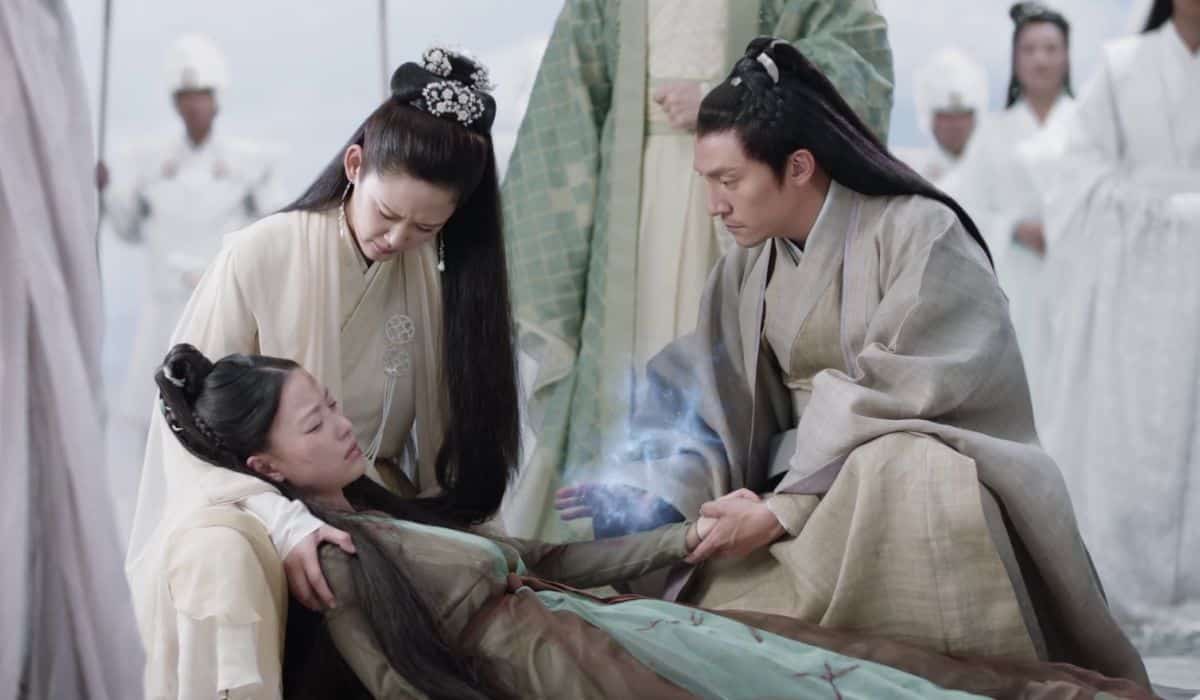
In a climatic sacrifice, Ying gives up her life as a goddess to be reborn mortal so she can be with Yan Sui. Their joy is short-lived when conspiring ministers frame the prince for treason, resulting in his death by poisoning. Ying is left alone and vulnerable, about to give birth to Yan Sui’s child.
Jumping ahead 18 years, the story resumes with Chen Yu (also played by Chang Chen), a talented physician returning to the kingdom after years abroad. He encounters Xuan Ji (Ni Ni again), a bubbly young woman on the run from an arranged marriage. She bears an uncanny resemblance to his lost love, Liu Ying, of whom he retains foggy memories.


